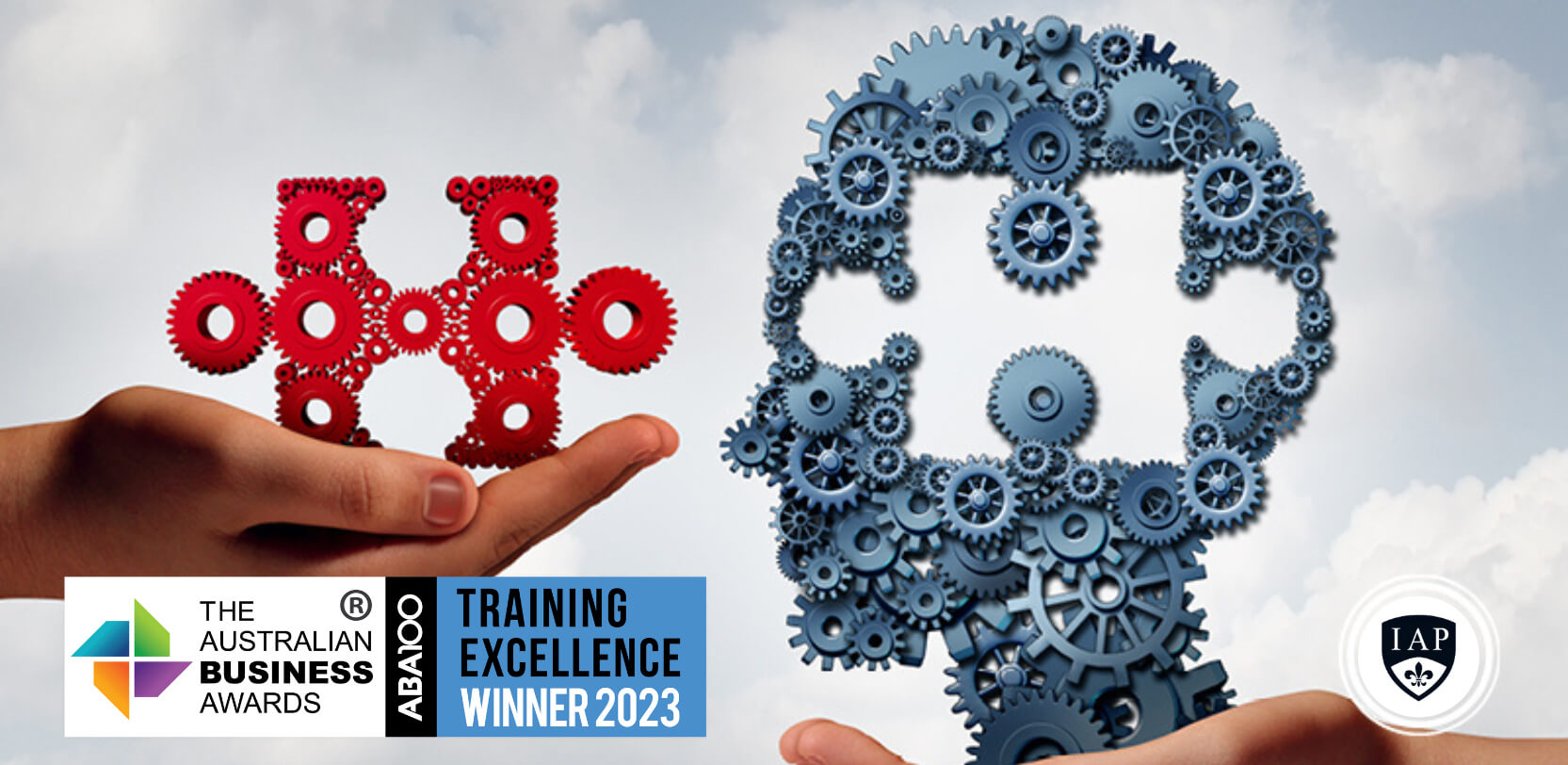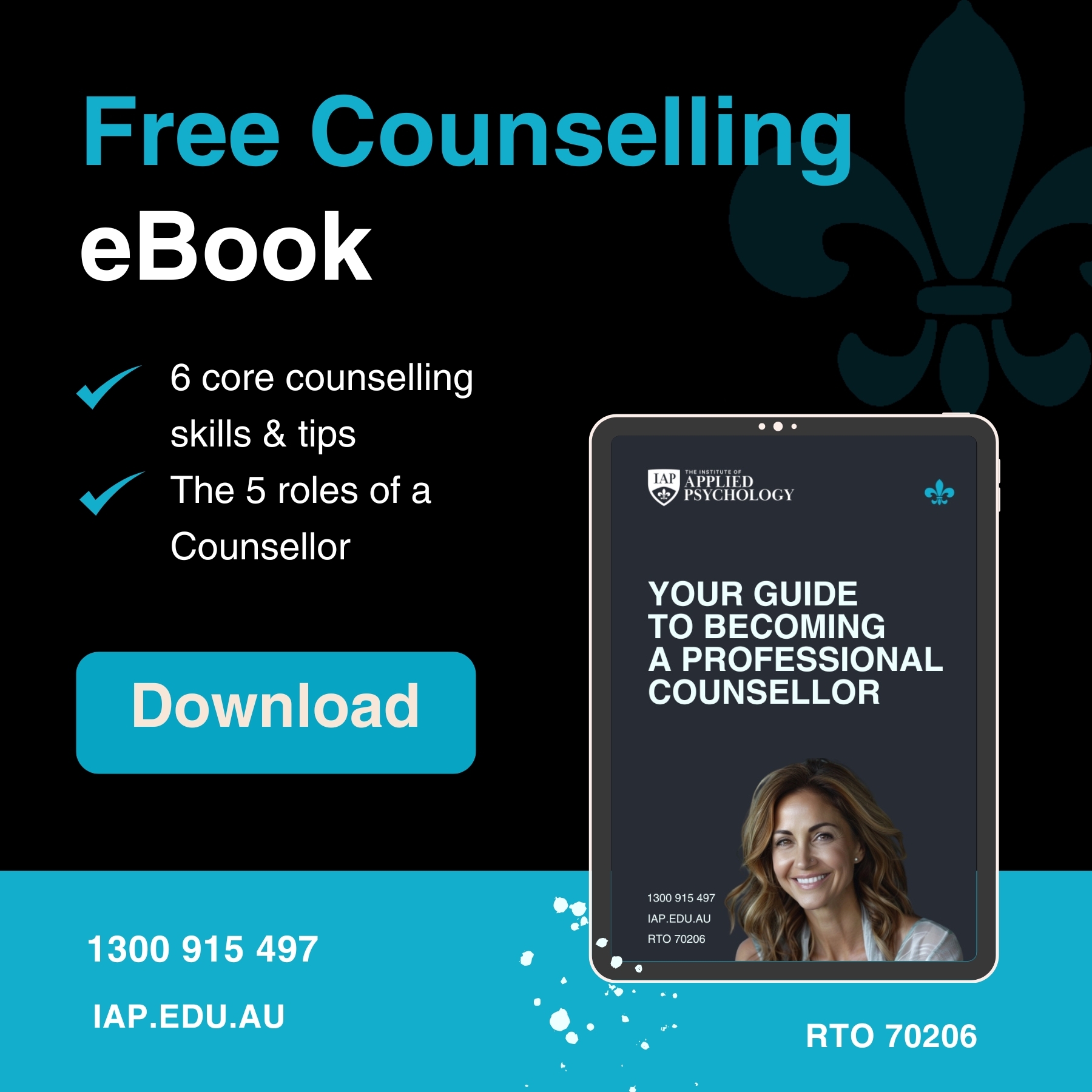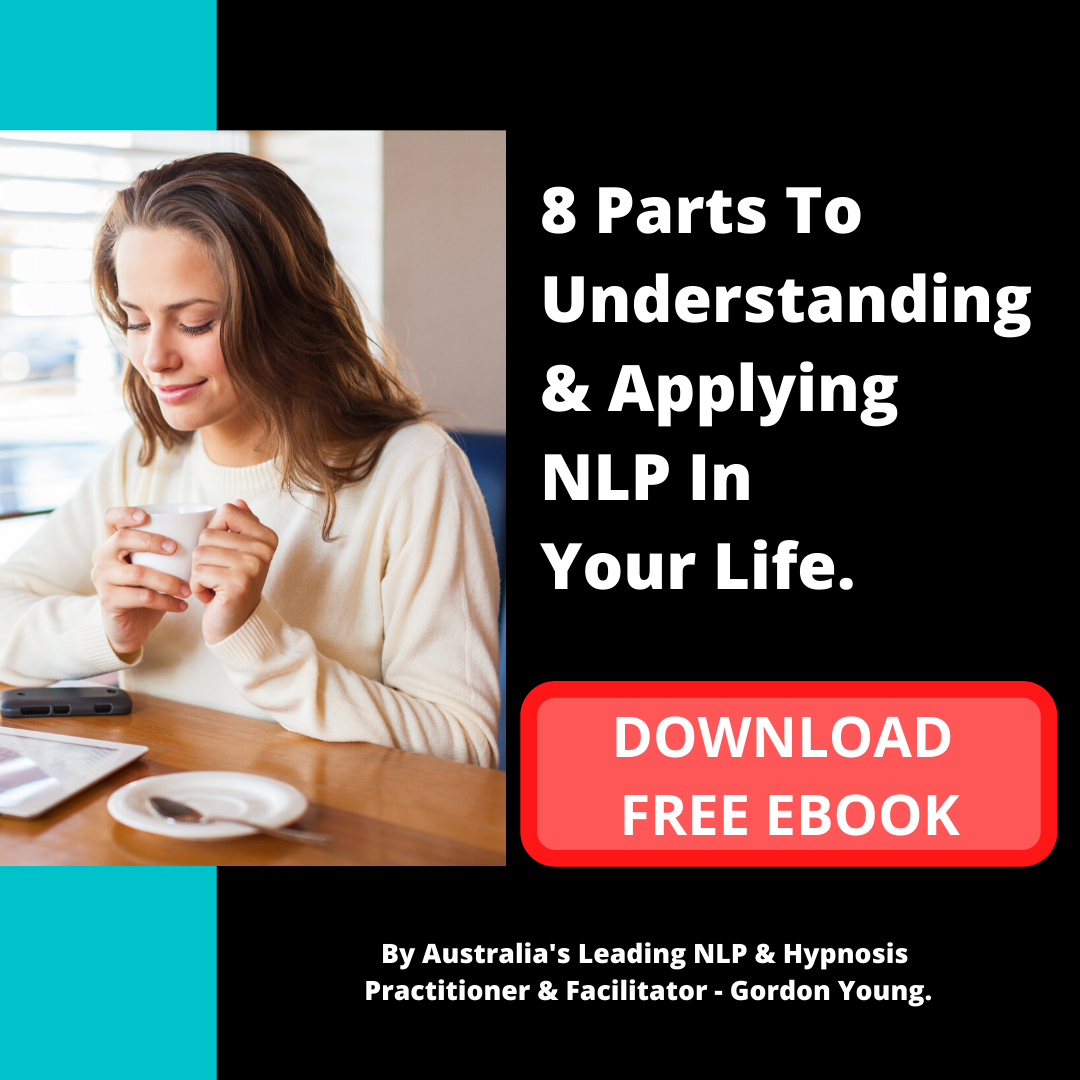How to Become a Successful Counsellor with a Specialisation
How to Become a Successful Counsellor with a Specialisation
If you’ve ever been the person friends or family turn to in tough times—or if you’ve felt a calling to help others overcome life’s challenges—counselling might just be your ideal career.
In Australia, the demand for qualified counsellors is growing every year. From mental health services and community programs to schools, private practice, and online therapy, counsellors are helping people navigate life’s most challenging moments and find new paths forward.
The CHC51015 Diploma of Counselling is your recognised pathway into this rewarding profession. At the Institute of Applied Psychology (IAP), we combine research-supported training with practical, hands-on learning to ensure you graduate confident, competent, and ready to make an impact.
Why Counselling is a Career Worth Considering
Becoming a counsellor in Australia means choosing a career where you can truly make a difference, while stepping into a field that’s in high demand. As awareness around mental health and wellbeing continues to grow, more people are reaching out for support than ever before—whether that’s through community services, schools, healthcare, private practice, or even online sessions. National labour market data shows that demand for qualified counsellors is expected to keep rising, fuelled by the need for accessible support across cities, regional areas, and remote communities. It’s a path that offers flexibility, variety, and the chance to walk alongside people as they navigate challenges, build resilience, and create meaningful change in their lives.
According to Jobs and Skills Australia, approximately 33,800 counsellors are working in Australia in 2025, with an annual growth of around 700 roles.
Counsellors are needed in:
– Mental health services
– Community organisations
– Education and youth programs
– Private practice (face-to-face or online)
– Specialist areas like grief, trauma recovery, and clinical hypnosis
It’s a career that offers flexibility, personal satisfaction, and the opportunity to create real change in people’s lives. With mental health needs increasing across Australia, counsellors are more important than ever. One of the best starting points for you would be the CHC51015 Diploma of Counselling. This course could help enable you to become a qualified counsellor and seek employment or the opportunity of your own business.
What will you learn in the CHC51015 Diploma of Counselling?
Core Units – The Foundation of Great Counselling
The 13 core units are grouped into modules, giving you a logical and supportive learning pathway.
Module One – Orientation and Introduction
-
- A warm welcome from IAP and an overview of your course.
Module Two – Communication Skills & the Counselling Framework
- CHCCSL001 Establish and confirm the counselling relationship – Building rapport is at the heart of excellent counselling. In this unit, you’ll learn how to create a safe, non-judgmental space where clients feel heard, seen, and supported—laying the groundwork for a strong therapeutic alliance.
- CHCCSL002 Apply specialist interpersonal and counselling interview skills – Here, you’ll develop the practical tools of communication—such as active listening, paraphrasing, and reading nonverbal cues—to guide meaningful conversations and create a genuine connection with clients.
- CHCCSL003 Facilitate the counselling relationship and process – This unit brings it all together. You’ll learn how to manage the full journey of counselling, from intake to closure, with structure and care. It’s about guiding clients through their transformation with consistency and respect.
- CHCCSL007 Support counselling clients in decision-making processes – This unit teaches you how to empower people, rather than giving them answers. You’ll learn to guide clients in exploring their options, clarifying their values, and making confident, informed choices.
Module Three – Personality & Learning Theories
- CHCCSL004 Research and apply personality and development theories – Understanding people starts with understanding how we grow and why we behave the way we do. You’ll explore key psychological theories and how to apply them to support your clients’ unique journeys.
- CHCCSL005 Apply learning theories in counselling – Everyone learns and changes differently. This unit helps you tailor your approach, using well-known learning theories to support behaviour change, personal growth, and emotional wellbeing.
- CHCCSL006 Select and use counselling therapies – You’ll gain hands-on experience with various therapeutic techniques, including Cognitive Behavioural Therapy, Psychoanalytic/Psychodynamic Therapy, Person-centred therapies (Gestalt, Rogerian approaches), Narrative Therapy, Solution-focused Therapy, Family Systems Therapy, and Eclectic / Holistic Therapies.
- CHCCCS017 Provide loss and grief support – Loss is something we all face, and this unit helps you walk beside people in those raw, painful moments. You’ll learn how to offer presence, patience, and the right kind of words, without needing to “fix” anything—just honouring the human experience of grief.
Module Four – Legal, Ethical & Professional Considerations
- CHCLEG001 Work legally and ethically – This unit helps you navigate the legal and ethical responsibilities of counselling with confidence. You’ll learn how to protect your clients and yourself and develop a clear understanding of boundaries, confidentiality, and your duty of care.
- CHCPRP003 Reflect on and improve own professional practice – Good counsellors never stop learning. This unit encourages self-reflection, allowing you to grow both personally and professionally. You’ll explore feedback, supervision, and the art of self-awareness—vital tools for staying grounded and effective in your work.
Module Five – Working with Diversity
- CHCDIV002 Promote Aboriginal and/or Torres Strait Islander cultural safety – You’ll explore how to respectfully connect with Aboriginal and Torres Strait Islander peoples, understanding the impact of history, culture, and intergenerational trauma. This unit helps you build genuine trust and cultural awareness skills every compassionate counsellor needs.
- CHCDIV001 Work with diverse people – You’ll explore how to work respectfully with people from diverse backgrounds and walks of life. Whether it’s age, culture, gender, ability or belief systems, this unit helps you bring inclusion and empathy into every conversation.
Module Six – Crisis Situations & Mental Health
- CHCCCS019 Recognise and respond to crisis situations – You’ll learn how to keep calm and provide support when someone is facing a crisis. Whether it’s mental health challenges, safety concerns, or emotional distress, this unit equips you to act swiftly, empathetically, and responsibly.
- CHCMHS001 Work with people with mental health issues – This unit gives you a strong foundation in recognising common mental health conditions and how to offer support without judgment. You’ll explore collaborative, recovery-focused approaches and may begin to use techniques inspired by ACT and other modern modalities to help people reframe their relationship with thoughts and emotions.
Module Seven – Case Management
- CHCCSM005 Develop, facilitate and review all aspects of case management – Sometimes clients need more than talk therapy. You’ll learn how to coordinate support, work with other professionals, and ensure your clients get the full help they need, especially when multiple services are involved.
Electives & Specialisation Pathways – Tailor Your Counselling Career
Once you’ve completed the core units, you’ll choose four electives. These can be from the Standard Electives list, or you can commit to one of IAP’s three specialisations.
Standard electives that you could choose four from:
Standard Electives (Choose four)
CHCCCS014 Provide brief interventions
Sometimes, a brief and focused session can have a profound impact. This unit teaches you how to work with clients in a time-sensitive way—perfect for those moments when someone just needs a clear, calm guide to help them shift perspective or take action. You’ll also touch on frameworks such as motivational interviewing and ACT principles, where applicable.
CHCCCS017 Provide loss and grief support
Loss is something we all face, and this unit helps you walk beside people in those raw, painful moments. You’ll learn how to offer presence, patience, and the right kind of words, without needing to “fix” anything—just honouring the human experience of grief.
CHCMHS001 Work with people with mental health issues
This unit gives you a strong foundation in recognising common mental health conditions and how to offer support without judgment. You’ll explore collaborative, recovery-focused approaches and may begin to use techniques inspired by ACT and other modern modalities to help people reframe their relationship with thoughts and emotions.
CHCCCS003 Increase the safety of individuals at risk of suicide
You’ll learn how to have some of the most challenging conversations—with compassion, clarity, and safety at the forefront. This unit equips you with practical tools and strategies to recognise risk, respond appropriately, and connect clients with the support they need.
NAT11271001 Work within a clinical hypnosis framework
This unit introduces you to the powerful tool of clinical hypnosis—an evidence-supported way to help clients access their unconscious mind and make meaningful changes. You’ll explore ethical practice, mindset preparation, and how to utilise hypnosis in conjunction with other therapeutic tools.
CHCFAM003 Support people to improve relationships
Here, you’ll learn how to work with individuals, couples, or families who are navigating conflict or disconnection. You’ll help them communicate more effectively, set boundaries, and rebuild trust, often using frameworks from systemic therapy and ACT to help guide change.
If you would like to choose a specialisation that is featured on your government accredited diploma, choose one of the following options:
1. Mental Health Counselling
You could be the person that others turn to in crisis, you feel called to help support recovery from trauma, anxiety or substance abuse. The Mental Health Counselling specialisation helps equip you with practical skills in trauma-informed care, emotional wellbeing, and managing co-occurring challenges, with electives grounded in contemporary mental health frameworks.
Career pathways could include roles in community services, trauma recovery, and NDIS support. Or, you may choose to establish your own private counselling practice, offering flexibility and independence.
Units include:
Mental Health Counselling Specialisation
- CHCMHS001 Work with people with mental health issues
The unit provides a solid foundation in recognising common mental health conditions and how to offer support without judgment. You’ll explore collaborative, recovery-focused approaches and might start to use techniques inspired by ACT and other modern modalities to help people reframe their relationship with thoughts and feelings.
- CHCMHS005 Provide services to people with co-existing mental health and alcohol and other drugs issues
Real life isn’t always neat, and many people face challenges with both mental health and substance use. This unit teaches you to meet people where they are, working collaboratively and non-judgmentally to support complex needs.
- CHCMHS007 Work effectively in trauma-informed care
You’ll learn to see the world through a trauma-informed lens—understanding the impact of trauma on the brain, body, and behaviours. This unit empowers you to respond with sensitivity and build trust, creating a space where healing becomes possible.
- CHCMHS011 Assess and promote social, emotional and physical wellbeing
You’ll look at mental health holistically—focusing not just on what’s “wrong,” but on what builds resilience, connection, and meaning. This unit often draws on ACT principles, encouraging clients to live a values-driven life even in the presence of discomfort.
2. Grief & Loss Counselling
If you feel drawn to helping people in the most challenging times or if you’re drawn to palliative care, bereavement support, or helping people through life’s most difficult transitions, the Grief & Loss Counselling stream offers the tools to support clients with compassion and depth. You’ll study grief models, suicide bereavement, and emotional care strategies—preparing you for meaningful work in aged care, schools, hospices, or your own specialised service.
Grief & Loss Counselling Specialisation Units
- CHCCCS017 Provide loss and grief support
Loss is something we all face, and this unit helps you walk beside people in those raw, painful moments. You’ll learn how to offer presence, patience, and the right kind of words, without needing to “fix” anything—just honouring the human experience of grief.
- CHCCCS018 Provide suicide bereavement support
This unit guides you in supporting those left behind after a suicide, navigating complex emotions like guilt, shock, anger, and deep sorrow. You’ll learn how to gently support their grieving process while helping them find ways to live alongside their loss.
- CHCCCS003 Increase the safety of individuals at risk of suicide
You’ll learn how to have some of the most challenging conversations—with compassion, clarity, and safety at the forefront. This unit equips you with practical tools and strategies to recognise risk, respond appropriately, and connect clients with the support they need.
- CHCMHS007 Work effectively in trauma-informed care
You’ll learn to see the world through a trauma-informed lens—understanding the impact of trauma on the brain, body, and behaviours. This unit empowers you to respond with sensitivity and build trust, creating a space where healing becomes possible.
3. Clinical Hypnosis
If you’re inspired by human transformation and change, Clinical Hypnosis provides powerful tools to help people shift long-held patterns and unlock their potential. You’ll master hypnotic language, strategic therapeutic approaches, and unconscious reprogramming—perfect for private practice, online therapy, or performance coaching. This stream includes a 4-day in-person intensive, giving you hands-on experience and practical mastery.
Units include:
Clinical Hypnosis Specialisation (Extra cost applies)
- NAT11271001 Work within a clinical hypnosis framework
You’ll be introduced to a modern, evidence-supported approach to hypnosis—not for swinging watches, but for real, sustainable change. You’ll explore ethical frameworks, learn how hypnosis works, and how to position it within therapeutic practice.
- NAT11271002 Prepare for clinical hypnosis session
Learn how to assess client readiness, establish safe environments, and co-create goals before guiding someone into a trance. This unit also covers how to build rapport, manage expectations, and tailor suggestions for lasting impact.
- NAT11271003 Prepare for clinical session
Deepen your understanding of strategic psychotherapy and its integration with hypnosis. You’ll refine your ability to create targeted, personalised interventions—especially for challenges like anxiety, stress, habit change, and more.
- NAT11271004 Monitor and evaluate clinical hypnosis interventions
This final unit ensures you’re not just “doing hypnosis”—you’re doing it well. You’ll learn how to track client progress, adjust techniques, and stay aligned with client goals for ongoing transformation and care.
Your Next Step
Whether you want to work in community services, specialise in mental health, or start your own private practice, the ACA-recognised CHC51015 Diploma of Counselling with IAP could help you make it happen.
📞 Call 1300 915 497 or visit iap.edu.au to talk to a Course Advisor about the pathway that’s right for you.








